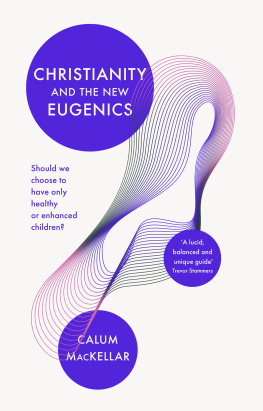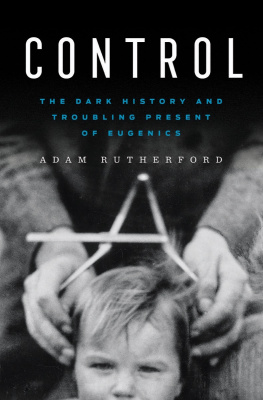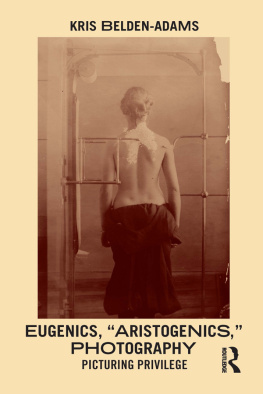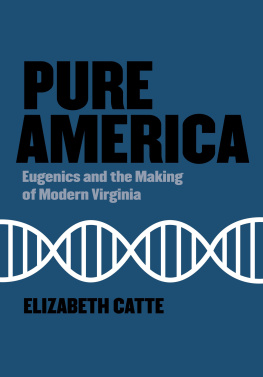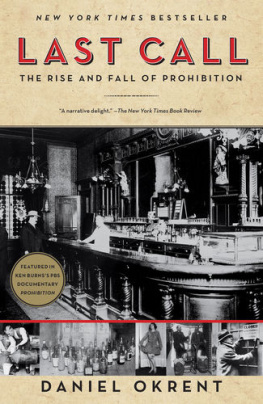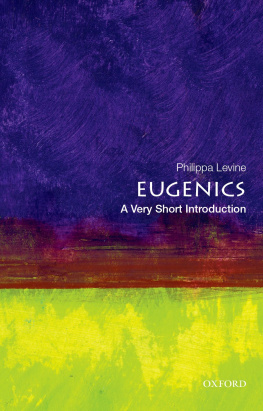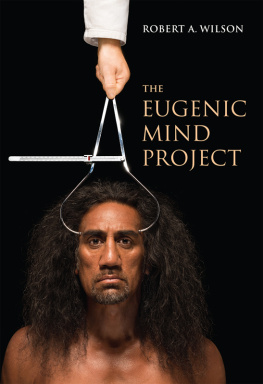
Mocking Eugenics
Mocking Eugenics explores the opposition to eugenic discourse mounted by twentieth-century American artists seeking to challenge and destabilize what they viewed as a dangerous body of thought. Focusing on their wielding of humor to attack the contemporaneous science of heredity and the totalitarian impulse informing it, this book confronts the conflict between eugenic theories presented as grounded in scientific and metaphysical truth and the satirical treatment of eugenics as not only absurdly illogical but also antithetical to democratic ideals and inimical to humanistic values. Through analyses of the films of Charlie Chaplin and the fiction of F. Scott Fitzgerald, Ernest Hemingway, Anita Loos, and Wallace Thurman, Mocking Eugenics examines their use of laughter to dismantle the rhetoric of perfectionism, white supremacy, and nativism that shaped mainstream expressions of American patriotism and normative white masculinity. As such, it will appeal to scholars of cultural studies, literature, cinema, sociology, humor, and American studies.
Ewa Barbara Luczak is Professor at the Institute of English Studies, University of Warsaw and President of the Polish Association for American Studies. She is the author of How Their Living in Europe Affected Five African American Authors, Breeding and Eugenics in the American Literary Imagination: Heredity Rules in the Twentieth Century and the co-editor of New Cosmopolitanism, Race and Ethnicity: Cultural Perspectives.
First published 2022
by Routledge
2 Park Square, Milton Park, Abingdon, Oxon OX14 4RN
and by Routledge
605 Third Avenue, New York, NY 10158
Routledge is an imprint of the Taylor & Francis Group, an informa business
2022 Ewa Barbara Luczak
The right of Ewa Barbara Luczak to be identified as author of this work has been asserted by her in accordance with sections 77 and 78 of the Copyright, Designs and Patents Act 1988.
All rights reserved. No part of this book may be reprinted or reproduced or utilised in any form or by any electronic, mechanical, or other means, now known or hereafter invented, including photocopying and recording, or in any information storage or retrieval system, without permission in writing from the publishers.
Trademark notice: Product or corporate names may be trademarks or registered trademarks, and are used only for identification and explanation without intent to infringe.
British Library Cataloguing-in-Publication Data
A catalogue record for this book is available from the British Library
Library of Congress Cataloging-in-Publication Data
Names: Luczak, Ewa Barbara, author.
Title: Mocking eugenics: American culture against scientific hatred / Ewa Barbara Luczak.
Description: Abingdon, Oxon; New York, NY: Routledge, 2021. | Includes bibliographical references and index.
Identifiers: LCCN 2021006253 (print) | LCCN 2021006254 (ebook) | ISBN 9781032000893 (hardback) | ISBN 9781032000909 (paperback) | ISBN 9781003172680 (ebook)
Subjects: LCSH: Eugenics--United States--History--20th century. | Eugenics in mass media.
Classification: LCC HQ755.5.U5 L83 2021 (print) | LCC HQ755.5.U5 (ebook) | DDC 363.9/20973--dc23
LC record available at https://lccn.loc.gov/2021006253
LC ebook record available at https://lccn.loc.gov/2021006254
ISBN: 978-1-032-00089-3 (hbk)
ISBN: 978-1-032-00090-9 (pbk)
ISBN: 978-1-003-17268-0 (ebk)
DOI: 10.4324/9781003172680
I would probably never have finished this journey without the support, help and kindness of many people.
I would like to express my gratitude to the Corbridge Trust for the opportunity to embark on my new project in the Cambridge University Library in the summers of 2016 and 2017. Then a Kosciuszko Foundation research grant allowed me to work in an ideal setting at the University of California Humanities Research Institute at the UC Irvine in the spring of 2019. I would like to thank Prof. David Theo Goldberg for hosting me there and Arielle Read and Suedine Nakano for making my and my sons visit to Irvine a pleasant experience. Invitation by Prof. Georgia Warnke and Prof. David C. Lloyd in the fall of 2019 to the UC Riverside helped me rethink the arguments in my book. Generous support and an invitation to Colorado Springs from Prof. Andrea OReilley Herrera of the University of Colorado came at just the time I was struggling with writers block. The discussions with the faculty of the University of Colorado Colorado Springs specializing in disability studies proved invaluable.
I would like to thank the chair of the Institute of English Studies, Prof. Malgorzata Grzegorzewska and the Dean at the Faculty of Modern Languages, Prof. Maria Dakowska of the University of Warsaw for granting me sabbaticals in the spring and the fall of 2019.
Sincere appreciations also go to the librarians at UC Irvine, Christina J. Woo and Jenna Dufour, for helping me with the archival research and to James Hartzel for his excellent editing work. I am deeply thankful to Prof. Constante Groba Gonzales for inviting me to speak at the University of Santiago de Compostela. The last chapter of this book was written as a part of his research project to which I was invited: Raza y corporeidad: cuerpos blancos y negros en conflict en la literature y el cine de los EU.
I would like to thank fellow Americanists for opening to me academic venues where I could share my ideas: Prof. Sami Ludwig for an invitation to teach at Universit de Haute-Alsace, Mulhouse; Prof. Gudrun M. Grabher (University of Innsbruck) and Prof. Agnieszka Soltysik (Universit de Lausanne) for inviting me to give talks at their universities; as well as Prof. Martin Klepper (Humboldt University) for inviting me to the seminar Eugenics and Self-Help Culture.
My heartfelt gratitude also goes to Georgia Elliott for generously opening the door to her house. Having the opportunity to work in the office of Prof. Emory Elliott was a powerful experience. Elisse Martinez invited me at a moment of crisis and was the most welcoming hostess imaginable. The news of the death of her husband, the unique artist and writer Prof. Eliud Martinez, saddened me deeply.
I would like to express my gratitude to Prof. Carlos Morton for being a loyal and supportive friend who continues to broaden my geographical horizons; to Prof. Eric Sundquist for never getting tired of me and my requests; and Prof. Judith Lee Yaross for inviting me to consider her book series.
I would also like to thank Prof. Agnieszka Piskorska, my dear academic friend who keeps strengthening my trust in the ethics in the academy. My gratitude also goes to Prof. Samir Dayal and Anna Pochmara for having trust and patience with me when we were putting together our book on New Cosmopolitanism, another darling of mine. I also offer my heartfelt thank you to Prof. Richard Yarborough for cheering for me at every stage of the formation of ideas. I continue learning so much from you!
My special thoughts go to Prof. Ronnie Ellenblum, one of the most challenging and brilliant intellectuals I have ever encountered. His untimely death left a gaping hole in my intellectual world.
I am sending big thanks to my female friends: Mary Lou Heally for hosting me in the summer of 2018; Jennifer Marmillod for our private talks over pizza; Dr Elizabeth Reddington for being an untiring hostess and New York guide to me and Jas; Malgorzata Kulesza for not giving up on me; Agnieszka Gornicka for answering my phone calls late at night; Zuzanna Ladyga for holding me up when I was falling; Ewa Dudziak for being there whenever I needed her; Ewelina Banka for sharing depth; Paulina Michalik for helping me in the moments of distress and Andrea Herrera for all her wisdom, kindness and love. Andrea, you are my American sis indeed!


